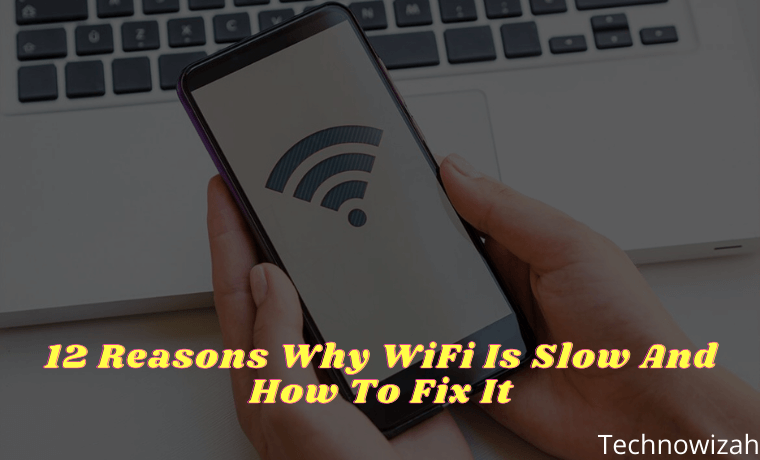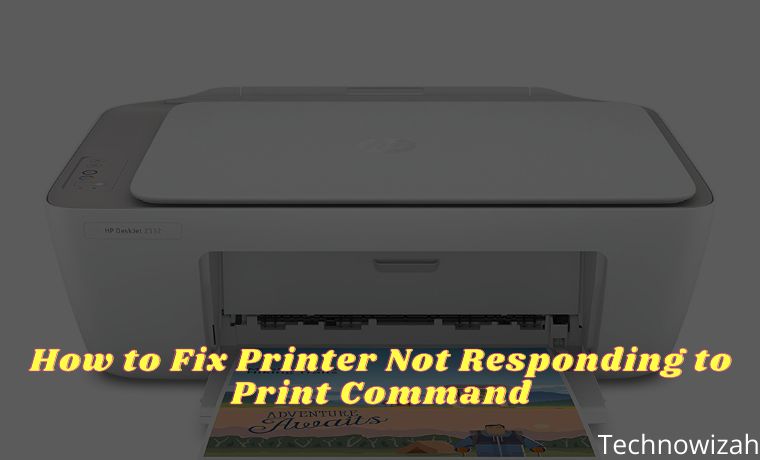12 Reasons Why WiFi Is Slow And How To Fix It – If you’re experiencing WiFi that feels sluggish or slow, there could be several reasons.

- 1 12 Reasons Why WiFi Is Slow And How To Fix It
- 1.1 #1. Router Placement: High VS Low
- 1.2 #2. Building Materials Block WiFi Signals
- 1.3 #3. Distance To Router
- 1.4 #4. Other Household Users
- 1.5 #5. Too Many Devices Connected To WiFi
- 1.6 #6. Digital Disturbance
- 1.7 #7. Noise From Your Neighbors
- 1.8 #8. Router is Old
- 1.9 #9. ISP Downtime ISP / Network Clogged
- 1.10 #10. Quota Limitation By ISP
- 1.11 #11. Someone Steals Your WiFi
- 1.12 #12. ISP DNS Not Good
- 2 How to Fix Slow WiFi
12 Reasons Why WiFi Is Slow And How To Fix It
Luckily, there are steps you can take to fix slow WiFi. So, let’s take a look at the reasons why WiFi is slow.
Read more:
- How to Know WiFi Password on Windows 10 Laptop PC
- 9 Ways to Fix No WiFi Networks Found Windows 10 PC
- Wifi Is Often Disconnected On Laptops Here Is The Solution
- 7 Ways To Open Windows Task Manager on Windows10 PC
#1. Router Placement: High VS Low
The placement of your router plays an important role in your home WiFi network. Even a slight change in position can slow down your WiFi. In fact, finding the correct position is one of many ways to increase the speed of your router.
As it turns out, the height of the router makes no difference. Mounting the router on the ground or behind another object usually results in much worse performance. Instead, place the router as high as possible to extend the radio broadcast range. It also helps rid the router of interference.
#2. Building Materials Block WiFi Signals
Materials like concrete and metal are usually the biggest blockers of WiFi signals. So, you might want to avoid placing your router in the basement, as a lot of concrete usually covers this area. Other materials can also hamper the performance of your wireless network. Make sure other large objects are not blocking your router.
#3. Distance To Router
The further your device is from the router, the weaker the WiFi signal will be. Therefore, the best option is to place your router as close to your device as possible.
If your broadcast router looks very weak or if your house is very large, then you may need to increase the range of the WiFi band. A WiFi extender or repeater is an additional device that connects to the main router and covers a wider area.
#4. Other Household Users
Have you ever let a big download run on your PC? That might be the cause of your slow WiFi. Downloading large files can seriously hurt your WiFi performance. So if you’re running a non-urgent task, try pausing it.
What’s more likely, however, is that people in your network such as friends, roommates, or family members are taking part in activities that require a lot of bandwidth such as playing games or streaming videos.
#5. Too Many Devices Connected To WiFi
You need to count how many devices are connected to your WiFi. Because the more devices connected, the slower your internet speed.
Many devices automatically download and upload which can eat up bandwidth. Therefore, if you have many devices connected to WiFi, make sure you buy an adequate internet package.
#6. Digital Disturbance
Digital disruption can occur for a number of reasons. There is a wireless signal from WiFi, electronic devices, cell towers, satellites, and other sources. While WiFi typically uses a different signal than these other devices, radio noise can still cause interference.
Some older routers only use a single band on the 2.4 GHz frequency. However, Bluetooth devices, microwave ovens, and cordless phones also use the same 2.4 GHz frequency range. This overlap causes WiFi interference. If possible, try connecting to the 5 GHz frequency band as it is less congested, or try selecting a different channel.
#7. Noise From Your Neighbors
Almost every household has its own WiFi network, which can create overlapping channels. Overlapping channels are a problem for routers that can only broadcast at 2.4GHz, or if you have devices that can only receive 2.4GHz wireless signals. This is because there are only 14 channels to transmit. Two routers broadcasting on the same channel on the same frequency will interfere with each other.
That’s why you have to choose the right channel in your router settings. Modern routers can select the channel for you automatically, but sometimes it’s better to search and find the best WiFi channel for your network.
#8. Router is Old
Routers older than 5 years may not meet the latest standards (802.11ac / WiFi 5) or provide simultaneous dual-band support for 2.4 GHz and 5 GHz.
Especially when it comes to ISP-provided router/modem units, it may be time to upgrade to the latest and greatest. Let’s take an analogy like this, having the latest smartphone serviced by an old router is like having a good race car with the cheapest tires you can usually find.
#9. ISP Downtime ISP / Network Clogged
Sometimes, ISPs suffer from downtime and poor connections. Nothing is perfect. It must have been experienced by every ISP. However, dealing with internet rush hour is the same as Monday morning traffic.
Especially after people get out of work or on lazy weekends, when everyone in the neighborhood is using the internet at the same time, congestion occurs and ends up creating a network with heavy traffic.
#10. Quota Limitation By ISP
Do you know how much data you use each month? Home users typically spend more than 200 GB per month. All the videos, online games, and hours of browsing on the web lead to high data usage. Therefore, many ISPs reduce their customers’ internet speed because they have passed the reasonable usage limit. For example, Indihome applies the FUP (Fair Usage Policy) system or fair usage limits to each of its customers.
#11. Someone Steals Your WiFi
First, let’s hope your WiFi is password protected. Second, make sure your passwords are strong and varied. And don’t use weak passwords like “123456” “password” or “qwerty”. Because if other people connect to your WiFi without your consent, they steal your bandwidth.
#12. ISP DNS Not Good
When someone types a website address into their browser, the computer automatically uses DNS to convert the address into an understandable IP address.
In some cases, the computer is using a DNS server that is having problems. Your router usually uses your ISP’s DNS servers, but that doesn’t guarantee speed. Better DNS can help speed up loading times.
How to Fix Slow WiFi
Identifying the cause of your slow WiFi can be a challenge. From technical to non-technical things, it can be the cause of your router being slow. Therefore, to fix it, start with simple things like restarting your WiFi router device. If you’re still having slow internet issues it’s time to call your ISP for an answer.
![8 Ways to Fix The Hosted Network Couldn’t Be Started in Windows 10 [2026] 8 Ways to Fix The Hosted Network Couldn't Be Started in Windows 10](https://technowizah.com/wp-content/uploads/2021/07/8-Ways-to-Fix-The-Hosted-Network-Couldnt-Be-Started-in-Windows-10.jpg)







